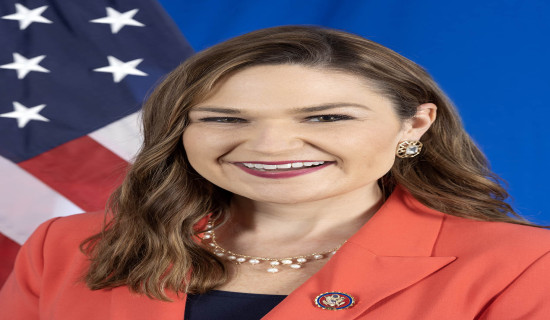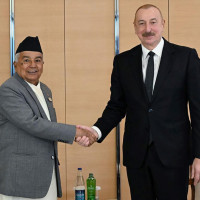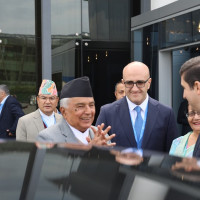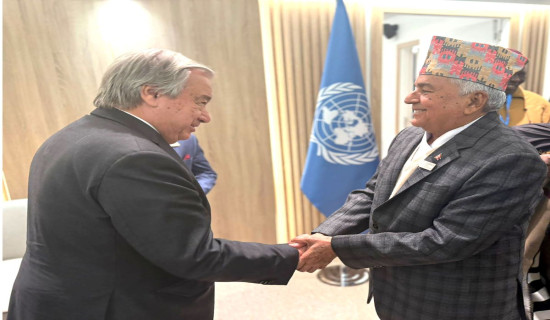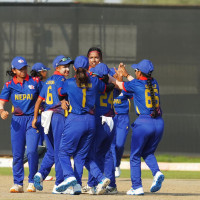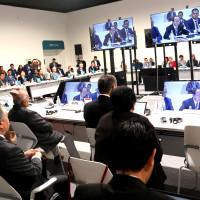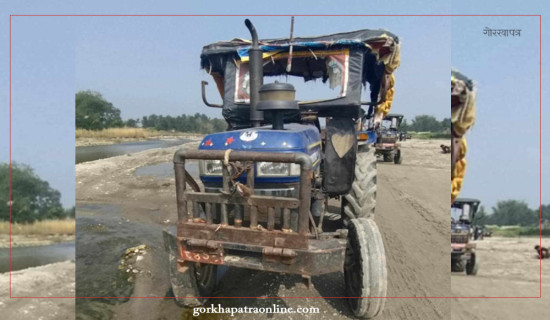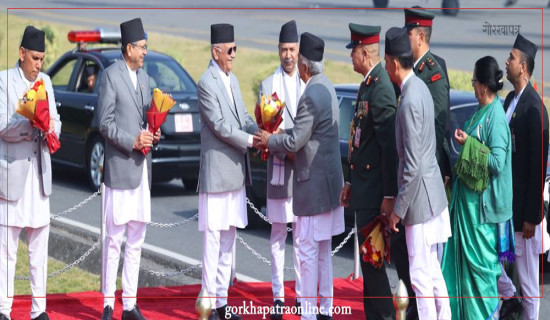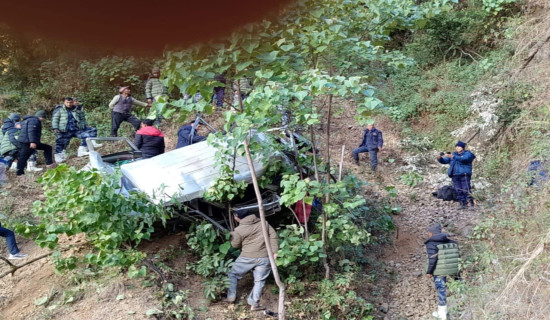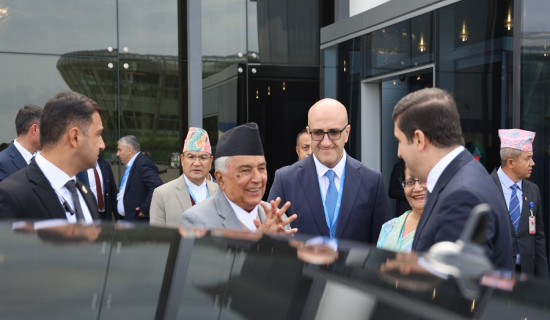- Friday, 15 November 2024
Role of Russian assistance in development of Nepal
 Er. Ram Bindu Shrestha
Er. Ram Bindu Shrestha
20th July is the day of the establishment of the diplomatic relations between the Soviet Union and Nepal in 1957 which opened the
doors of mutual cooperation in education, industry and infrastructure
development between the two countries. A number of intergovernmental agreements
were signed then that laid the foundation for bilateral cooperation. In
accordance with them, the Soviet Union provided Nepal with substantial support
in the construction of industrial and social infrastructure.
In 1957, the Soviet government began to provide scholarships to talented young Nepalese to study in universities and institutes
in the USSR. It is assumed that more than eight thousand specialists have graduated
since then. Many of them have worked as scientists, engineers, doctors,
and agronomists etc., and taken up responsible posts in the state,
administrative and economic spheres of Nepal. Here we are discussing their
contribution to nation-building.
There are many renowned graduates who have served and played an important role in the country's development. It will be difficult to list them all in this short article, and we apologize if some names are missed.

Er. Hari Man Shrestha was the first expert who predicted that Nepal has the potential to produce 83,000 Megawatts of hydroelectricity. He is the pioneer who introduced the country to the international arena with the tag 'Nepal ranks second in the world after Brazil in the potential of hydroelectricity'. He had researched 'Hydropower Potentiality in Nepal' in 1966 as a part of PHD thesis from Moscow Electrical Engineering Institute. Er. Dipak Gyawali, Water Resource Expert, specialized in Hydroelectric Power (MEI) from Moscovsky Energichesky Institute (MEI), served as Nepal’s Minister of Water Resources in 2002/03 and initiated community electricity. Mr. Nilambar Acharya, who received a master's degree in Int’l Journalism from Moscow State University (MGU), became Minister of the Government of Nepal, Chairperson of the Constitutional Committee of the Constituent Assembly, and Ambassador of Nepal to India.

At a time when there were very few doctors in Nepal, Nepalese doctors who graduated from Soviet Universities served in remote areas of Nepal. Dr. Arjun Dev Bhatta, Senior Urologist, Dr Bhagwan Koirala and Prakash Raj Regmi are well-known Cardiologists, Dr. Dirgha Singh Bam famous Chest Diseases, Pulmonologist, Allergist, Bronchologist and Epidemiologist and Dr. Bishwa Bandhu Sharma, in psychiatry, are renowned names in the medical field are also the product of USSR.
Engineer Devendra Karki, a graduate of MADI, became the
secretary of the Ministry of the Government of Nepal. The Soviet Union was the
first country where women's rights and women empowerment was realized in
actuality. Graduates from the former USSR have maintained this tradition. Gunakeshari
Pradhan Manandhar is Nepal’s first female computer engineer, also a former
Director of Nepal Telecom, and she earned her MSc in computer engineering from the
USSR.
Some of the USSR returnees established Engineering and other professional Consultancy firms and played a vital role in providing technical support to government and other sectors in the feasibility, planning, implementation, management, monitoring and evaluation of various development projects. They also created job opportunities for thousands of other graduates and played a substantial role in transferring technology.

In addition to the devotement of high skilled human resources in Nepal, the Soviet Union provided significant development assistance to Nepal in the establishment of fundamental infrastructure in the agriculture, industry, and transportation sectors. The Panauti Hydropower is the first megawatt (MW) capacity station (1965); Janakpur Cigarette Factory (1965); Birgunj Sugar factory (1964); Agriculture Equipment Plant in Birgunj (1968), 110 km East-West Highway, Construction of the Kanti Children's Hospital, Plant for Rosin and Turpentine (1987) in Western Nepal are examples among them. The Soviet Union was the country that selflessly helped in the industrialization of the agriculture sector which was the main need of an agricultural country like ours.
On this significant day of the 66th anniversary of the diplomatic relations between the two countries, we feel thankful to the Soviet &
Russian governments for their selfless assistance to our country, and especially
grateful to all teachers, professors, and all Soviet/Russian peoples for their
contribution to our education.
(Shrestha is a graduate of Soviet University, 1991)



